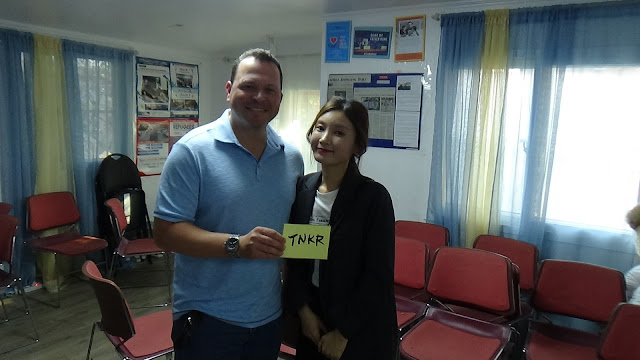The Teach North Korean Refugees Global Education Center (TNKR) had its second small group discussion this week, this time with a group visiting from the USA. Two TNKR speakers who have been with us since 2015 gave great speeches, then engaged with the audience in Q&A.
I started off the session by asking audience members if they had any questions. And they had PLENTY! I entertained them until our featured speakers arrived. It turned out that they had done some research on us in advance and had some specific questions about me and TNKR.
These sessions are great even for our accomplished speakers. As it has been said, "The threat of execution sharpens the mind." Knowing they will be speaking in front of a live audience with questions keeps the speakers on their toes. After a point, they would have heard almost every question that could possibly be asked about North Korea and North Korean refugees. They can then continue developing their responses.
Having more than one speaker at an event also has great advantages. A key one is that audiences can hear more than one perspective. So many people, after hearing one North Korean refugee, seem to consider that person to be the one and only source about North Korea. I will never forget the South Korean friend who kept telling me about North Korea and North Korean refugees, based on a former co-worker who was from North Korea. When I told her that I had heard a variety of opinions from North Korean refugees, she was undeterred, she had already heard everything she needed to hear, from that one North Korean refugee she had worked with.
After Cherie and Ken spoke, we then had a lively Q&A. Cherie and Ken have been in TNKR since 2015, joining us about six weeks apart, and they have never left us. They know each other's stories, so they will even explain about each other. In my case, I can challenge and push both a bit to further develop their public speaking.
After that, it was photo time! We had more than 20 people squeezed into our small office--21 students, 2 tour guides.
During the discussion I challenged the grad students to take us on as a project--and they agreed!
Support FSI: www.patreon.com/fsi21









